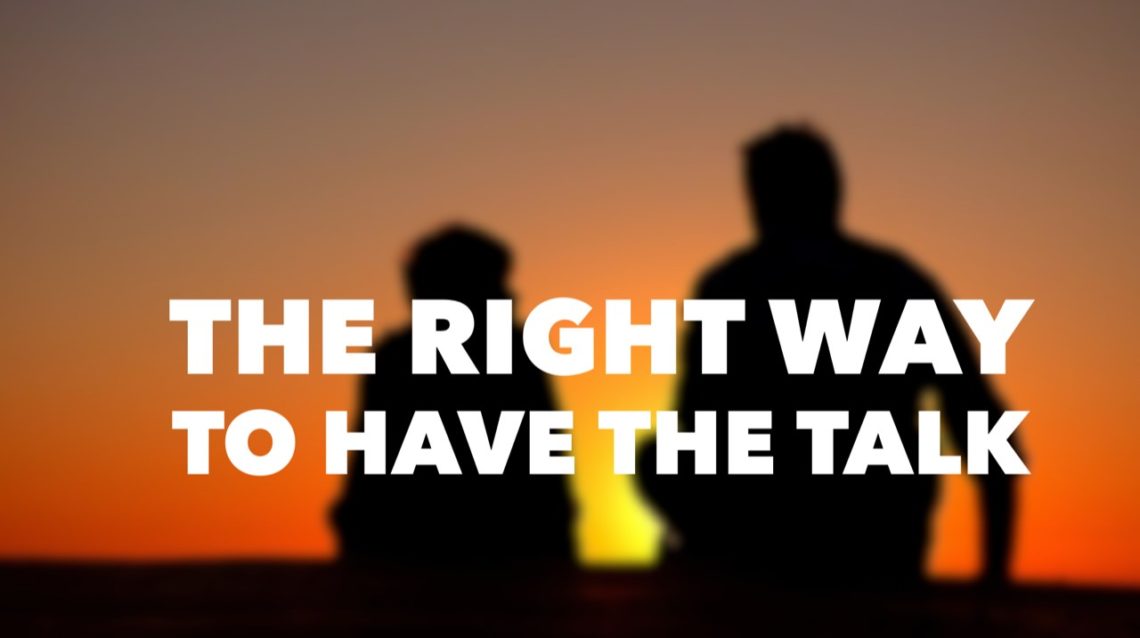
I remember getting “the talk” from my stepdad when I was 12 years old. I could tell by his efforts and timing that it was thrown together at the last minute. He fumbled and stumbled his way through the 30-minute awkward conversation and in the end, we were both relieved when it was finally over.
Fast forward thirtyish years and I now find myself in the same position with my eleven-year-old son. And even though I’ve consumed as much information as possible in preparation for “the talk,” I still fear having it. The lyrics from Eminem’s song “Lose Yourself” best describe my feelings on the matter. “His palms are sweaty, knees weak, arms are heavy, there’s vomit on his sweater already: Mom’s spaghetti.” Yup, that was me. My fear of “the talk” not only stemmed from my own forgettable experience with my stepdad, but also because I wanted to make sure that with my son I said the right things, in the right way, at the right time.
Well, I recently had the chance to interview Dr. Jim Burns about “the talk” on a podcast I host, and I came to learn that my whole viewpoint on the matter was flawed. Here’s what I learned:
There are no right things.
Jim said that anytime you talk to your kid about sex, you may walk away feeling like there were things you didn’t say that you wish you would have said, or things you said that you wish you had said better. You won’t always get it right, or even know what to say and that’s okay.
He recommended to always finish the conversation with room to pick it back up again later by simply saying, “Can we talk about this another time?”
There is no right way.
Do I have “the talk” with my kid while driving around in the car?
Or do I have “the talk” with them in their bedroom?
Is this a 30-minute conversation?
Or is this an all-day retreat?
Is this a morning conversation before breakfast?
Or is the evening more effective?
Do we sit down from each other and have a formal conversation?
Or do we have it while doing something informal together?
These are the questions I asked myself. And like me, you can overthink these all day long.
Jim’s advice was to simply use the rhythm of your day to start conversations about sex.
There is also no right time.
The talk can take place intentionally by you scheduling time with your child and saying, “What kind of things have you heard about sex?”
Or, it can take place unintentionally when your child one day randomly asks you a question about sex or puberty because the topic came up at school, or on the bus, or at a friend’s house and you respond by saying something calmly like, “I’m so glad you asked me” (while internally freaking out).
Jim’s advice: It’s important to start the conversation while your kids are young. You don’t have to tell them everything in that moment, or in one talk. This should be many talks—over time—but start young. And that right there was my biggest take-away from my time with Jim.
“The talk” is not a one-time talk.
And, it’s not a lecture.
Instead, it’s a conversation.
It’s a dialogue that hopefully continues through the phases.
Depending on the phase, your kid may be uncomfortable talking about sex and puberty with you, but they need to know you care enough about them and their body that you will push through the awkwardness to have the conversations.





